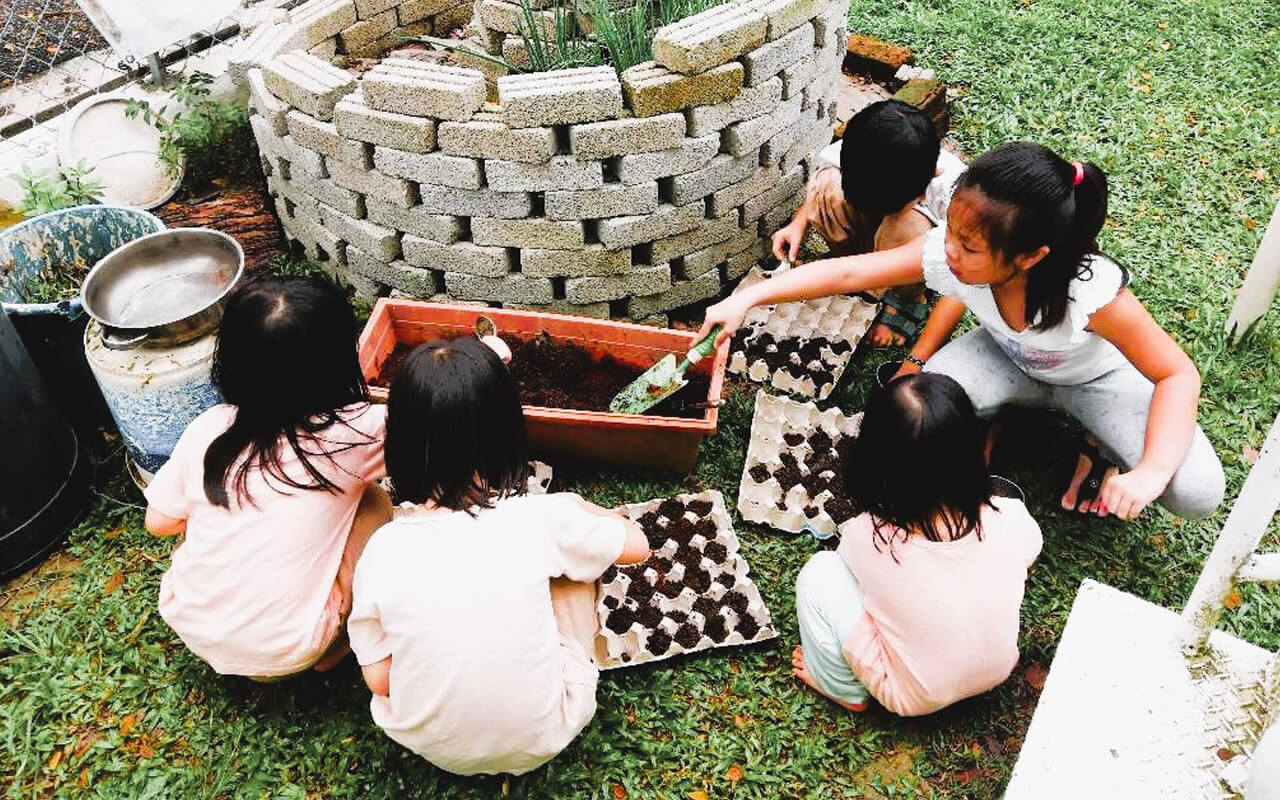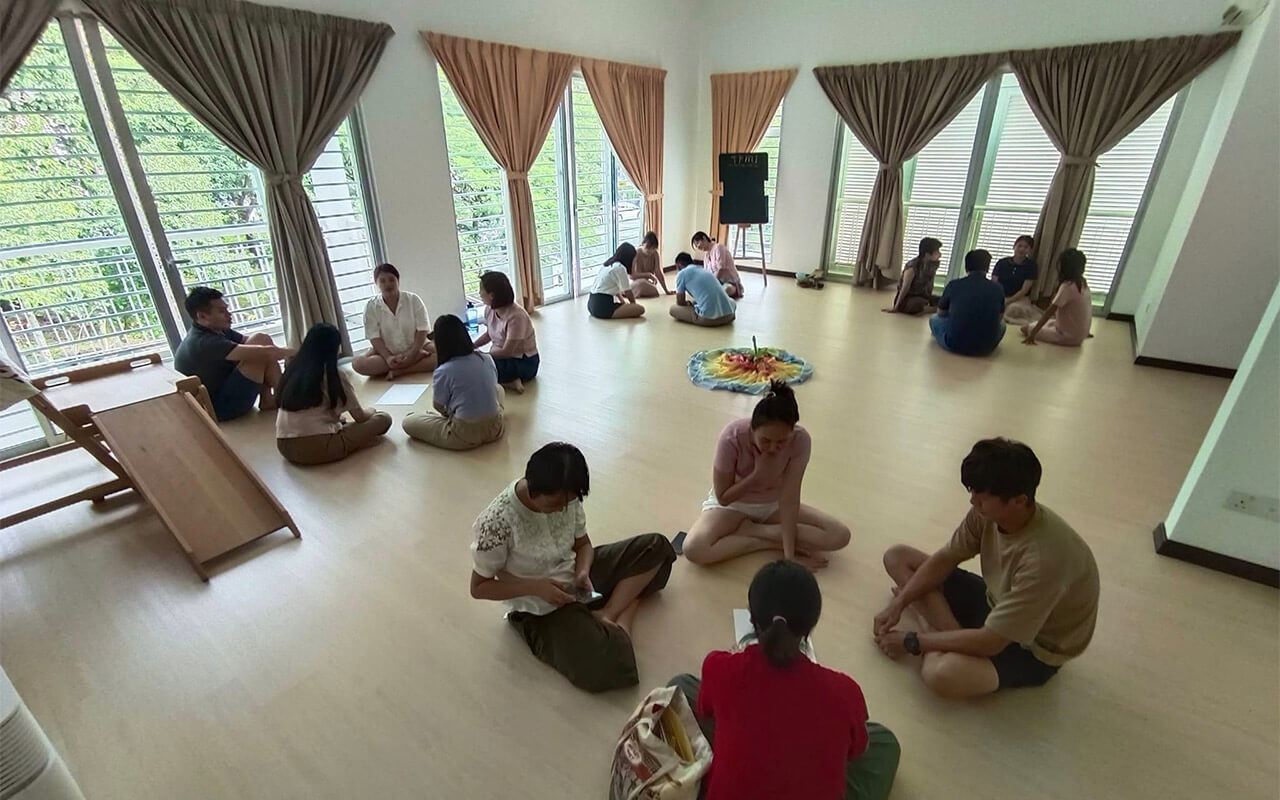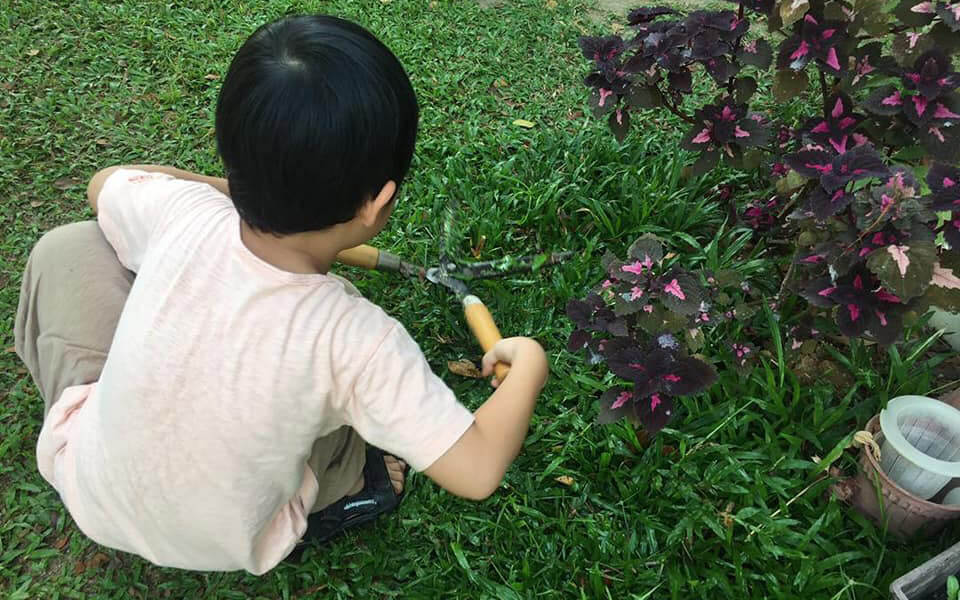Home » Early Education
Early learning in the first five years is of utmost importance as it forms the foundation for a child’s lifelong development*. During this critical period, the brain is highly receptive to learning and experiences, with an astonishing amount of growth and neural connections being established.
Providing enriching and stimulating environments that encourage exploration, play, and interaction nurtures cognitive, social, emotional, and physical development. These early experiences lay the groundwork for future academic success, social skills, and overall well-being.

Furthermore, early learning experiences during the first five years shape a child’s attitude toward learning and foster a love for knowledge. When children are exposed to engaging, hands-on activities, responsive caregivers, and a supportive learning environment, they develop a positive association with learning and an inherent curiosity to explore the world around them.
Early learning experiences also contribute to the development of crucial skills such as language and communication, problem-solving, and critical thinking, which are fundamental for success in school and beyond. Investing in high-quality early learning programs and environments is an investment in the child’s future, setting the stage for a lifetime of learning and growth.

We recognized these key connections between children and parents/ guardian plays a key role in early education therefore the practice of a collaborative process between parents, teacher and children is vital for a successful learning experience.

Rudolf Steiner
Waldorf- education-based childcare created by Rudolf Steiner promotes a balanced and holistic approach to early childhood development, supporting children’s natural capacities, fostering creativity, and nurturing their connection with themselves, others, and the world around them.
Grow with us – A harmonious integration between indoor and outdoor environments holds great significance for early childhood learning.
Indoor classrooms at Morning Stars Playhouse a Waldorf- based education playschool are intentionally designed to create a warm, home-like atmosphere that nurtures imagination, creativity, and a sense of security. The environment typically includes natural materials, open-ended toys, and simple yet beautiful learning materials that engage the senses and foster hands-on exploration. This allows children to immerse themselves in imaginative play, artistic activities, and practical life experiences that support their cognitive, emotional, and physical development.


While outdoor learning and nature-based experiences are considered essential for early childhood development as outdoor spaces offer endless opportunities for discovery, sensory integration, and connection with the natural world. These experiences help children develop a deep reverence for nature, develop physical coordination and balance, and cultivate a sense of wonder and awe. Outdoor activities also foster social skills, cooperative play, and an understanding of ecological interdependencies, nurturing a sense of responsibility and care for the environment.
Waldorf- education-based childcare centre in Malaysia differs from regular education in its holistic approach, balanced curriculum, emphasis on experiential learning and artistic expression, and nurturing teacher-student relationships. It focuses on the overall development of the child, including their physical, emotional, intellectual, and spiritual aspects, while regular education in Malaysia tends to follow a more traditional academic-based approach with standardized testing.
The assessment methods in Waldorf- education based childcare centre education are qualitative and consider the child’s individual growth, while regular education places greater emphasis on examinations and grades
Teachers are typically required to have early childhood education credentials, including certifications in the field or better yet solid experience in child development and working with children. Teachers who commit in their professional development are highly valued, as it allows teachers to stay informed about the latest best practices in early childhood education, providing a safe and supportive learning environment for children.

Morning Stars Playhouse a Waldorf- based education playschool, is the brainchild of Director and Head Teacher Yong Hui Zee who is a Waldorf- education based childcare preschool–trained specialist with a board-certified Anthroposophy training. Her joy of being with children lead to her passion for childcare education.
Headteacher Hui Zee is constantly enriching herself and her team with new techniques and information on childcare to provide an enhanced life-learning journey to members of the community.
Some experiences include obtaining best practices of teacher- children’s relationships from Freshwater Creek Steiner School and Melbourne Rudolf Steiner School in Australia, co- host an Anthroposophy homecare workshop, an advocate of Bokashi composting, conducted 1-day Einreibung Massage, and engaging in Phenomenology studies (study of structures of experience and consciousness) to name a few.
Through her vision of a harmonious society, diverse perspectives coexist peacefully, and she believes this is achievable by nurturing and enabling children to express and discover themselves within a holistic approach, incorporating clearly defined boundaries that shape and develop them into responsible citizens contributing to the greater good of our community.
Food especially Organic produce holds significant importance for children due to its potential health benefits and environmental considerations. Firstly, organic foods are free from synthetic pesticides, herbicides, and genetically modified organisms (GMOs). By opting for organic options, parents can reduce children’s exposure to potentially harmful chemicals, supporting their overall health and well-being. Organic foods are also believed to have higher nutritional value, containing increased levels of vitamins, minerals, and antioxidants. This nutrient-dense composition can aid in children’s optimal growth, development, and long-term health outcomes.


Secondly, choosing organic food aligns with environmental-friendly practices. Organic farming methods prioritize soil health, biodiversity, and ecological balance. By supporting organic agriculture, parents contribute to reducing the use of synthetic inputs, minimizing water pollution, and promoting sustainable land management. This ensures a healthier environment for children, preserving natural resources and fostering a sense of responsibility towards the planet.
It’s important to note that while organic food offers potential benefits, providing a variety and balanced diet that includes a range of fresh fruits, vegetables, whole grains, and lean proteins—whether organic or conventional—is key for children’s overall nutrition. The focus should be on making informed choices that prioritize the quality and safety of the food consumed.
We recognized young children require a special diet for overall well-being . Therefore at Morning Stars Playhouse a Waldorf- based education playschool we provide the Life force diet as part of our meals program.
In our commitment to providing children with nutritious meals, we prioritize the use of organic or biodynamic produce and prioritize allergy-free food choices. By incorporating these practices, we not only ensure high-quality and nutrient-rich foods but also support local niche organic farming in Malaysia, promoting sustainability and environmental stewardship for the benefit of future generations.

Childcare safety is of paramount importance to ensure the well-being and protection of children. Below are key measures Morning Stars Playhouse a Waldorf- based education playschool is maintaining a safe childcare environment:
The presence of both indoor and outdoor CCTV installations offers an added sense of security and reassurance in the event of any unforeseen incidents.
Wooden flooring covers indoors as this has anti- slip effect while providing warmth to little feet. This child-friendly environment is free from potential hazards which include regular inspection of premises, includes loose electrical outlets, broken and sharp objects, and choking hazards.
Further to regular premise checks, floors are cleaned using enzyme-based detergents. This aids the environment while protecting humans from harmful chemical substances.
Lastly, we ensure visitations are solely by appointment during school sessions to deter unsolicited mishaps.
Our teachers undergo training in recognizing the importance of administering first aid, including the proper treatment of cuts, burns, and CPR techniques. Additionally, we maintain close proximity to the nearest emergency room, which is conveniently located within a 2-kilometer distance or a 5-minute car ride. In addition to well-stocked first aid kits, we regularly update and maintain emergency contact information for parents/guardians to ensure effective communication during any urgent situations.
The implementation of handwashing routines, regular cleaning, and sanitization of toys, surfaces, and facilities is enforced to prevent the spread of illnesses. Children are required to pick up after themselves post-playtime to avoid tripping and minor accidents. Regular assessment is carried out as health and safety procedures are ongoing processes.


